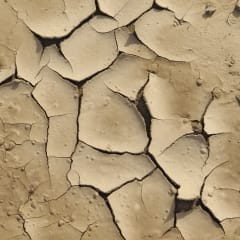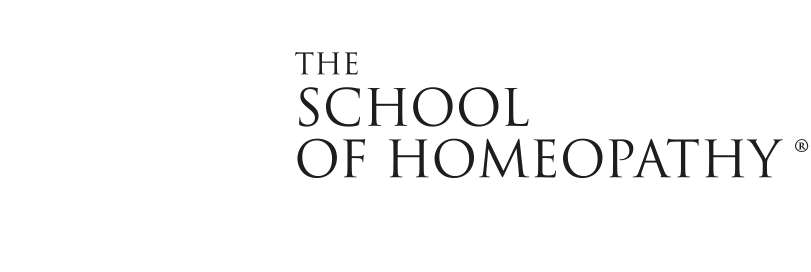
7 Homeopathic remedies for the treatment of eczema
Are you looking for a natural and holistic approach to improve your skin condition? Homeopathy may be able to help!
A homoeopath typically spends 90 minutes in the first consultation gathering information about your symptoms; not just the chief complaint (which may be eczema), but also your other problems past and present (such as allergies, asthma, headaches etc). This information is synthesised into a whole picture of your health so that the most fitting natural remedy can be prescribed.
The British Skin Foundation writes: “Atopic eczema is a very common skin condition due to skin inflammation. It may start at any age but the onset is often in childhood. 1 in every 5 children in the UK is affected by eczema at some stage. It may also start later in life in people who did not have eczema as a child… The term ‘atopic’ is used to describe a group of conditions, which include asthma, eczema and hay-fever and food allergy. These conditions are all linked by an increased activity of the allergy side of the body’s immune system. ‘Eczema’ is a term which comes from the Greek word ‘to boil’ and is used to describe red, dry, itchy skin which can sometimes become weeping, blistered, crusted, scaling and thickened.”
Homeopathy has a proven track record in helping alleviate chronic symptoms. In 2005, a study at Bristol Homoeopathic Hospital showed over 70% of patients with chronic diseases reported positive health changes following treatment. More than 6,500 patients took part in the six-year study with problems such as arthritis, eczema, asthma, migraine, irritable bowel syndrome, depression and chronic fatigue.
Here are 7 Homeopathic remedies known to help treat eczema:
Sulphur
I would like to quote Misha Norland, as he writes so eloquently about Sulphur! “Sulphur comes from deep within the earth... It is found in yellow crystal form around volcanic vents or fumaroles, where the heated gas has cooled and sublimated, and in liquid form in active volcanoes… This type of person may have his head in the clouds; he is an intellectual, and burns with high-minded ideas, plans and philosophies. His problem is that he cannot bring his theories or philosophies “in the air” down to earth… They have a strong tendency to be scruffy. Even if they have just had a bath, they still manage to look unclean and may develop red, dry, flaking skin, which can itch and burn and is worse from washing.... There are two types of Sulphur: one is outgoing, strong, solid and the other quiet, skinny and unsure of themselves, but both types take little care of their appearance.”
Graphites
Graphite is a carbon compound (like diamond and coal) that is commonly used as the ‘lead’ in pencils. It is a very useful remedy for eczema which is crusty, moist, yellow and sticky; especially forming in the folds of joints such as the elbows, knees or groin. The skin can become very dry, cracked, red, itchy and painful. The Graphites ‘type’ is usually a shy person whose mood swings from being light-hearted & jovial to having bouts of anxiety about their lack of self confidence. They are very sensitive, feeling types who are easily moved to tears by their favourite music or an emotional film, and suffer from a poor short-term memory. The remedy also strongly affects the digestion and is well-suited to overweight (or emaciated) patients.
Calcarea carbonica
The remedy is prepared from the Calcium carbonate found in oyster shells. As a bivalve mollusc, oysters are one of the most primitive lifeforms as well as most sought after culinary delicacies! Their compacted shells produce the limestone we use to build our houses and they even create beautiful pearls. It is a useful remedy for moist, discharging eczema, particularly on the scalp and in young children. The typical Calc-carb ‘type’ is down-to-earth, hardworking and cautious. They are more emotional types (as opposed to the intellectual Sulphur and Lycopodium) and can develop strong anxiety or even fear that others will notice their confusion or lack of knowledge. When times are bad, this can make them avoid people altogether! They can be quite impressionable, and as children they feel vulnerable without the support of their parents. Even as adults they may prefer the company of people they know well and avoid strangers.
Cicuta virosa
Cicuta, or northern water hemlock, is a poisonous plant in the Umbelliferae family (whose flowers are arranged like an umbrella). The eczema forms thick yellow scabs (like dried honey) and affects the cheeks, chin and scalp where it is burning and itchy. It is also useful in treating seizures, hiccoughs, jerks, spasms, tics or convulsions such as those found in epilepsy. These symptoms can come-on after a head injury. The Cicuta ‘type’ is not so well-known, but they can seem quite childish or immature whilst also being mistrustful of others especially if they have been disappointed by relationships in the past. When unwell, they will usually prefer to avoid company, perhaps even declaring that they have ‘lost faith in humanity!’
Sepia
Sepia is a remedy prepared from the ink of a cuttlefish; a fascinating sea creature in the cephalopod group. The animal is a supreme escape artist, using camouflage and it’s cloud of ink to escape from predators. Patients needing Sepia also tend to want to escape from their situation especially if it has become too dominated by chores! It is particularly helpful for long-standing eczema affecting the nose, chin, behind the ears, and the genitals with very dry skin. There may be a flareup during pregnancy or whilst breastfeeding especially if there are other stresses at the time, such as increased emotional demands. The Sepia ‘type’ is more commonly found in women where there is a tendency to exhaustion through overexerting themselves, particularly when trying to find a balance between career and motherhood. Their energy is flat; they become listless and detached, even averse to family members. They feel better for being occupied, or by vigorous exercise like jogging or dancing. They need the physical exertion to try and snap them out of the lethargic state. It has a broad remedial action, and is also useful for morning sickness, hormonal complaints, painful menstruation and hot flushes during the menopause.
Natrum Muriaticum
Natrum mur is the latin name for common salt which is a chemical bond between sodium and chloride. It has a profound effect on the physiology of the human body, especially in the fluid systems; resulting in dehydration and weight loss through increased salt loss through the kidneys and skin. Or on the other hand there can be waterlogged tissues, oedema and weight gain. It is used homeopathically for eczema which is worse at the seaside, appearing in the joints, genitals and around the hair and mouth. The Natrum mur type is naturally emotional, feeling-orientated and sensitive- they are good listeners and would much rather hear someone else’s problems than talk about their own. Their symptoms come on after grief, shock or rejection such as in unrequited love; after which they tend to brood for a long time over their misfortune. If this goes on for a sustained period, they can go into a walled-off, or unemotional state to try and protect themselves from being hurt again.
Lycopodium
Lycopodium is an ancient plant that evolved in the carboniferous era. At that time it was the size of a mighty tree, but in order to survive evolutionary change it has diminished in size to a delicate plant. In homeopathy, it is used for eczema that is bleeding, moist or discharging; affecting the scalp, armpits, limbs, back and neck and in eczema accompanied by liver complaints. The Lycopodium ‘type’ is well developed intellectually, but suffers from poor digestion and assimilation of nutrients from their diet. This results in a lot of digestive problems such as IBS, colitis, flatulence and abdominal bloating. They are very aggravated by fatty foods, and have a low point around 3pm when the blood sugar levels are at their lowest. When times are bad, these types can be dictatorial, obstinate and irritable and can come across with an inflated sense of their own ego. This may in fact be a compensation for an inner feeling of weakness or a lack of self confidence.
For acute problems you could try self-prescribing but for long term chronic problems like eczema you should consult a professional homeopath; you can find registered homeopaths at www.findahomeopath.org or come and see one of the homeopaths at the School’s Homeopathy Clinic in Stroud.
For those that would like to learn more for themselves, The School of Homeopathy produces an excellent First Aid Course. The complete course takes around a month to complete and it is home-based, so it can be done at your leisure, as intensively or gradually as you want.
Tags: Homeopathy for eczema | Homeopathic remedy types | Homeopathy for skin complaints
This entry was posted on 18 July 2019 at 14:42 and is filed under Homeopathy | Alternative Medicine | Health | Remedies.
